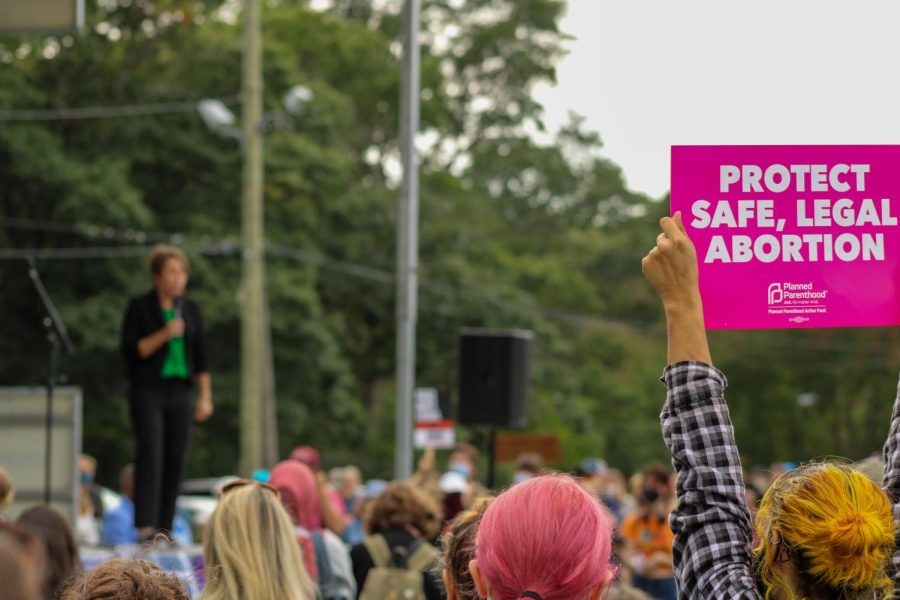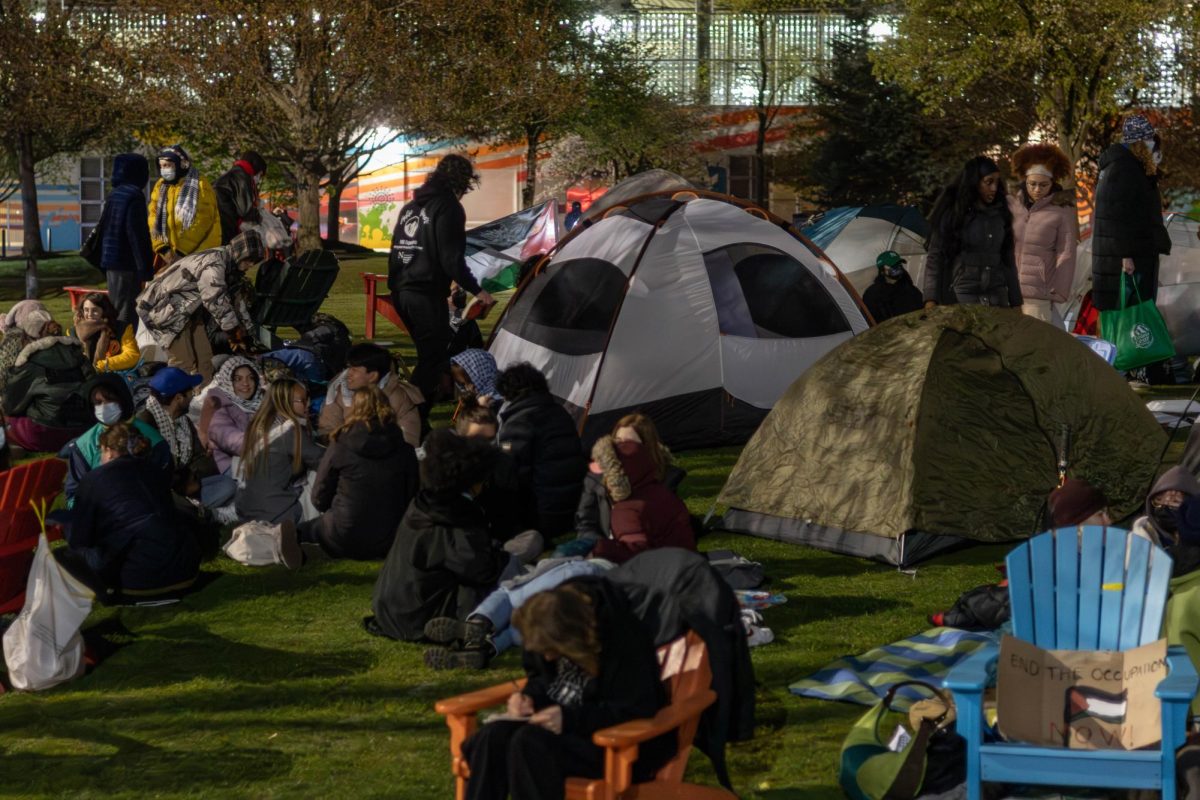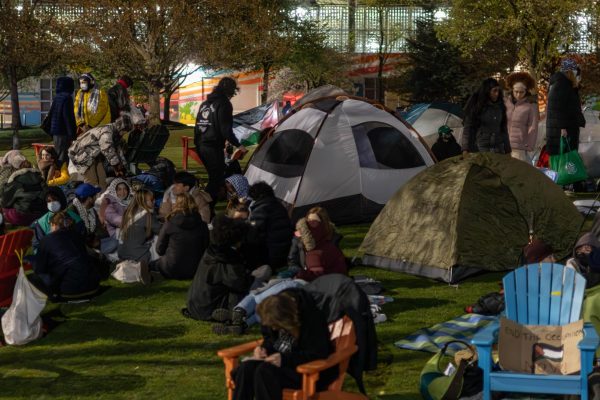Over 1,000 rally in Boston for abortion rights
Rally attendees hoisted signs expressing their support for abortion access, an issue that will come before the Supreme Court in its current term.
October 14, 2021
Advocates for abortion rights rallied in Boston Oct. 2, joined by others in cities nationwide, calling out in one voice: “Abortion is a right.”
Reproductive rights groups, including the American Civil Liberties Union, or ACLU, of Massachusetts, the Planned Parenthood Advocacy Fund of Massachusetts, and NARAL Pro-Choice Massachusetts, gathered the crowd in protest of the Texas law that bans abortions after six weeks of pregnancy. The protests also came two days before the Supreme Court’s new session in which the conservative majority court will hear a Mississippi case that limits abortions after 15 weeks of pregnancy.
At Franklin Park Playstead in Boston, Massachusetts Attorney General Maura Healey, Rep. Ayanna Pressley and Sen. Edward Markey, in addition to others, spoke to a crowd of over 1,000.
“So what brings us here today … righteous anger, radical love,” Pressley said to the crowd. “This is a matter of life and death because restricting access doesn’t mean that people will stop having abortions. It means they’ll stop having safe, legal abortions.”
The protest came at a moment Democratic lawmakers have feared for years — the case of abortion rights brought to a firmly conservative court, tipped rightward with former President Donald J. Trump’s three appointees, Neil Gorsuch, Brett Kavanaugh and Amy Coney Barrett.
“How the hell is it that eight out of 10 Americans in this country support [Roe v. Wade], and yet we have Texas and we have [the] specter of 20 other states banning abortion?” Healey said.
Healey is one of two dozen state attorneys general that have called on the Supreme Court to reverse Mississippi’s ban.
“That is anti-democratic by definition. I still believe in democracy, don’t you?” Healey said.
The cases Healey referenced include Dobbs v. Jackson Women’s Health Organization, a case limiting abortions after 15 weeks of pregnancy that the Supreme Court has agreed to hear in the new session. Already, the Court allowed a Texas law that bans abortion after six weeks of pregnancy to stand.
Despite the conservative-majority court, speakers pushed for the pro-choice majority legislature to act.
“This is the first majority pro-choice Congress in the history of Congress. Being in the majority has to be more than a talking point,” Pressley said.
Pressley is a leading sponsor of the Women’s Health Protection Act, which codifies Roe v. Wade by prohibiting many limitations on access to abortion services. The bill passed in the House Oct. 1 with a vote of 218-211, and Pressley insisted that the Senate must pass the bill on to President Joe Biden.
Abortion rights have been protected in Massachusetts ever since a state law passed last year in anticipation of the possible repeal of Roe v. Wade. Speakers brought attention to the precarious condition of reproductive rights in other states and “a string of right-wing attacks on abortion.”
“I don’t believe we would be here but for the presidential election of 2016,” said Tanisha Sullivan, president of the Boston branch of the NAACP. “[Trump] may be gone from the White House, but his supporters are sitting in legislative seats and on benches across our nation. They have an assignment to rewrite our nation’s history and to dismantle women’s rights and gender equality.”
Among the warnings, many rallying cries were hopeful.
“We are here to say that abortion rights are non-negotiable,” Markey said in one of the event’s final speeches. “We will not allow the Supreme Court decision to have the last word. We will have the last word.”
Markey continued to the fire up the crowd.
“Are you ready to fight?” he asked the crowd, who overwhelmingly cheered in response.
Before the speeches began, volunteers for groups including event sponsors ACLU, Planned Parenthood and NARAL tabled alongside other groups like the Massachusetts Women’s Political Caucus, the Jewish Alliance for Law and Social Action, or JALSA, the Party for Socialism and Liberation, and Refuse Fascism.
“It can’t end here,” said Stan Lawrence, who handed out posters emblazoned with “Abortion on demand & without apology!” and “Forced motherhood is female enslavement” at Refuse Fascism’s table.
“As powerful as some of the marches will be around the country, if we are not tapping into the anguish men and women are feeling around the country, we lose,” he said.
Speakers agreed that restricting reproductive rights leads to suffering. Pat Yingling, an abortion counselor in Boston from 1970-71, shared a story about patient and friend, Rosaura Jimenez, who died of pregnancy complications after being unable to receive an abortion. Pressley spoke of a young woman who met with the Abortion Rights and Access Task Force, who said she needed an abortion as a matter of life and death.
“Abortion access is not a political issue, it is a people issue,” Markey said as the event drew to a close.


















